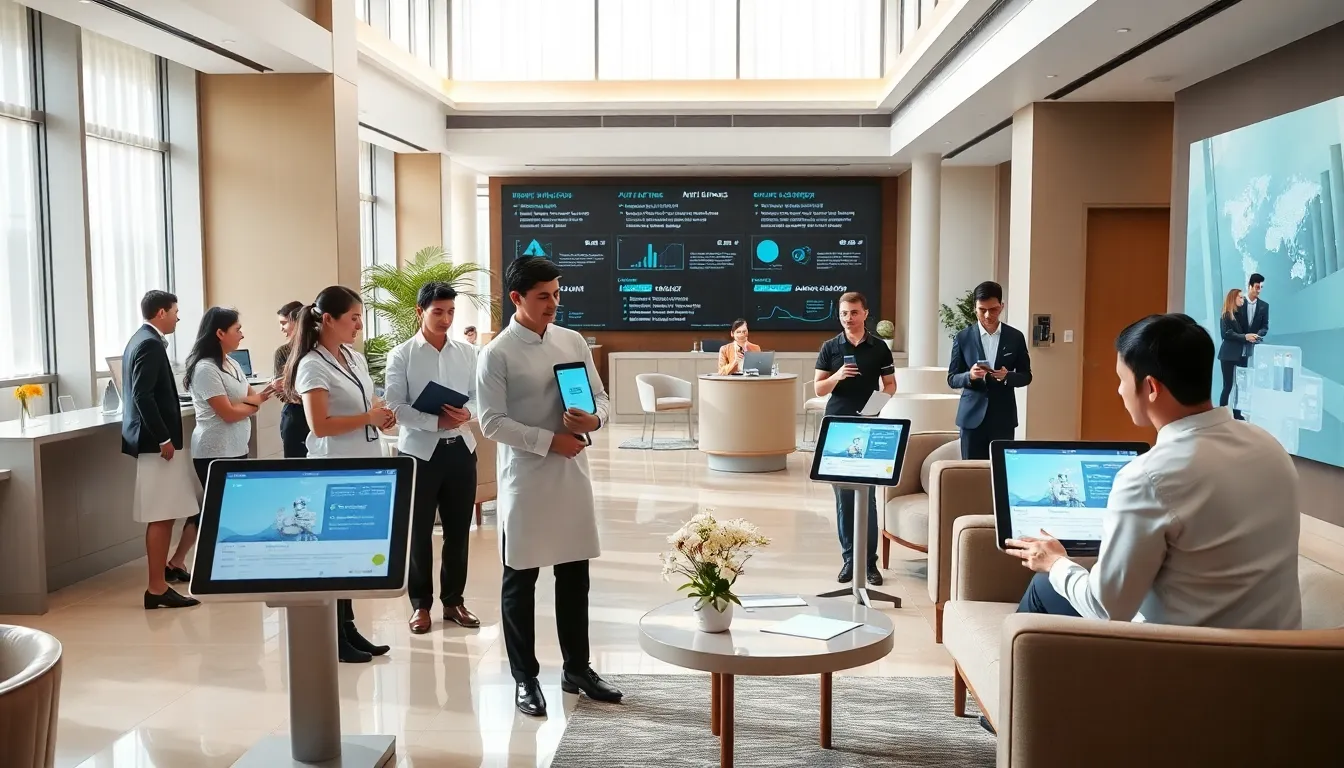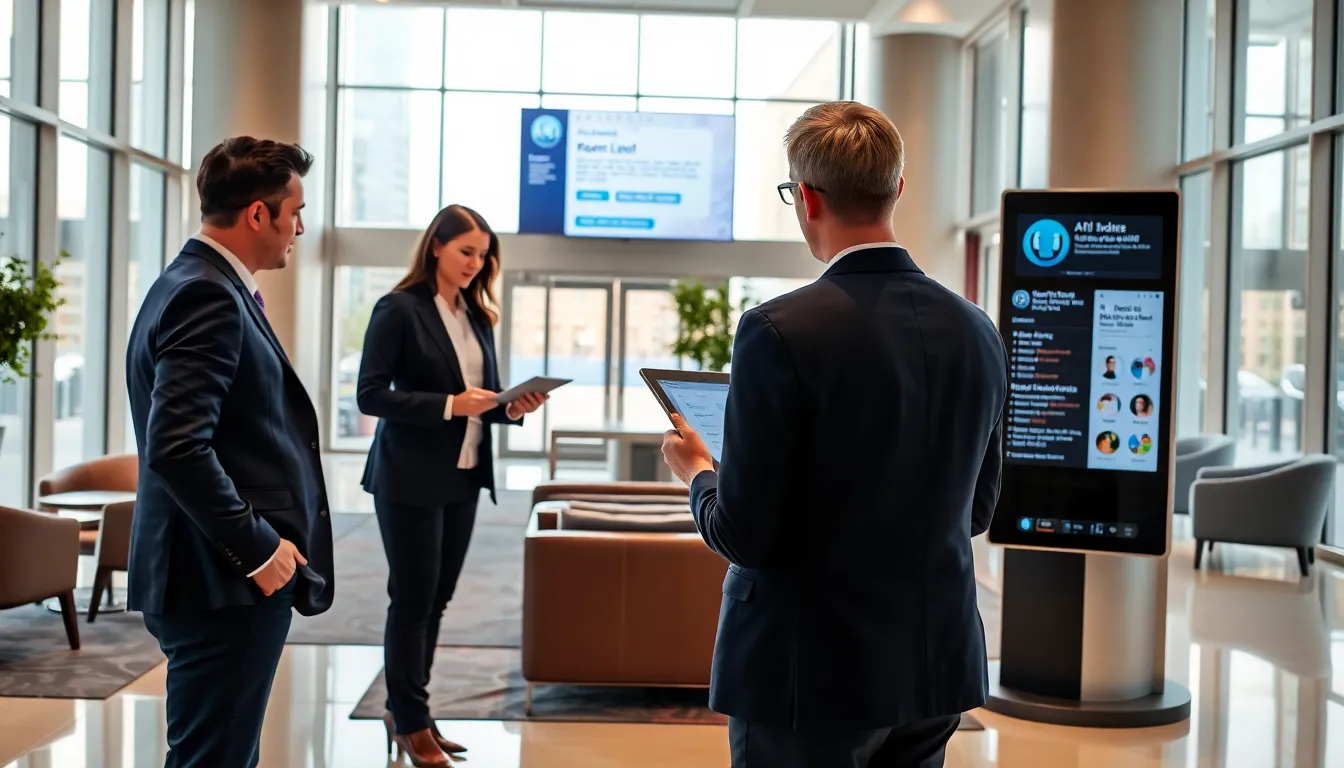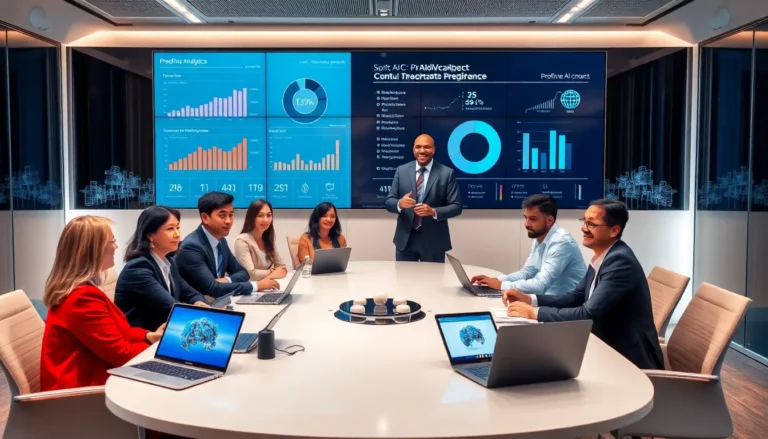Table of Contents
ToggleLet’s face it: the hospitality industry has always been a bit like juggling while riding a unicycle, full of challenges and constantly on the move. Enter artificial intelligence (AI), the friendly robot that’s ready to lend a hand (or a circuit). This technology is not just here for the thrill: it’s stepping up to enhance customer experiences, streamline operations, and tackle challenges like the seasoned pros it was designed to be. So, buckle up as we explore how AI is reshaping the way hotels, restaurants, and travel companies operate, bringing us closer to a future where guests are treated to service that’s as seamless as their check-in process should be.
The Role of Artificial Intelligence in Hospitality

In recent years, artificial intelligence has carved a niche for itself within the hospitality industry, driving innovation and setting new standards for service quality. AI systems are now capable of analyzing vast amounts of data, predicting customer preferences, and personalizing interactions. From smart chatbots that handle inquiries around the clock to sophisticated revenue management systems that adjust prices in real-time, the role of AI is expanding rapidly.
AI technologies, such as machine learning and natural language processing, allow businesses to understand customer behavior better. This understanding can lead to tailored marketing strategies and improved service delivery. For instance, a hotel might use AI to track a guest’s previous preferences, like room type or favorite drink, making their next stay even more personalized.
Also, AI doesn’t just enhance customer relations: it also assists in backend operations. By automating mundane tasks, staff can focus on providing quality service, rather than getting bogged down in repetitive duties. The integration of AI in hospitality is not just a phase: it’s a strategic move towards a more responsive and efficient industry.
Enhancing Customer Experience with AI
Customer experience is at the heart of hospitality, and AI is revolutionizing how businesses engage with guests. One prime example is the use of AI-driven chatbots. These virtual assistants can answer questions, book reservations, and even manage complaints at any time. Guests no longer need to wait on hold for answers: they can get instant support 24/7.
Besides, AI tools are helping to personalize services. By analyzing previous interactions, travel preferences, and feedback, hotels can create custom experiences. Imagine checking into a hotel where your favorite snacks are already waiting in the room, all thanks to AI monitoring your past visits.
Virtual concierges powered by AI are also helping guests discover local attractions. By understanding preferences based on past experiences, these tools can make tailored recommendations that enhance stays. Also, voice-activated assistants in hotel rooms allow guests to control their environment easily, whether it’s adjusting the temperature or ordering room service. These innovations are more than just conveniences: they contribute to creating memorable experiences that foster loyalty.
Operational Efficiency and Cost Reduction
AI doesn’t stop at enhancing customer experiences: it also plays a significant role in improving operational efficiency. Hospitality businesses face the dual challenge of providing quality service while managing costs. Here, AI shines by automating routine tasks and optimizing various operations.
For instance, AI can predict demand patterns in real-time. This would help hotels optimize staffing levels, ensuring enough personnel are available during peak times without driving up labor costs unnecessarily. Inventory management has also benefited from AI, as these systems can track supply levels and forecast needs, preventing wastage and stockouts.
Energy management is another area where AI can lead to substantial cost savings. Smart systems can adjust energy usage based on occupancy and usage patterns, resulting in lower utility bills. Together, these efficiencies not only reduce operational costs but also create a more sustainable business model.
AI-Powered Tools and Technologies in Hospitality
Several AI-powered tools have emerged in the hospitality industry, and their diversity is fascinating. Let’s start with revenue management systems. These applications use AI algorithms to analyze historical data and market trends, allowing businesses to dynamically price their offerings. This smart pricing ensures that they maximize both occupancy and revenue.
Then there are the increasingly prevalent AI chatbots. Hotels and travel services deploy these virtual agents for customer service, handling multiple inquiries simultaneously, something humans simply can’t match. The responsiveness and availability of these tools significantly enhance customer satisfaction levels.
Another interesting technology is the implementation of facial recognition systems at check-ins. This innovation streamlines the arrival process. Guests simply walk up to the reception desk where their identity is verified without any paperwork, just like magic.
Adding to this is predictive analytics, which utilizes data to foresee trends and customer behaviors. These insights enable businesses to make informed decisions, whether in marketing or service offerings, effectively anticipating guest needs before they even arrive.
Challenges and Ethical Considerations
But, the integration of AI in the hospitality industry doesn’t come without its challenges. Privacy concerns rank high on the list, as businesses must handle sensitive customer data responsibly. Guests may hesitate to share personal information if they aren’t assured of its security.
Another challenge arises from the potential for job displacement. As AI takes over routine tasks, there is a fear that human jobs might be at risk. But, it’s vital to emphasize that AI can also create new roles, those that require human intuition, creativity, and the personal touch.
Ethical use of AI is another aspect that needs consideration. Hospitality businesses must ensure that they’re not just using AI to maximize profits but also to maintain a humane approach to service. Striking a balance between technology and human touch is critical.
In short, while AI presents multiple advantages, it also necessitates careful thought about its implementation, ensuring technology enhances rather than detracts from the guest experience.
Future Trends of AI in Hospitality
Looking ahead, the future of AI in the hospitality industry appears bright and full of potential. One noticeable trend is the greater use of machine learning algorithms to enhance personalization. As this technology becomes more sophisticated, its ability to predict customer preferences based on extensive data will only improve.
Another emerging trend is the rise of voice search and voice-activated tools. Customers increasingly prefer communicating with devices using their voices. This shift will likely drive hotels to carry out voice search technology throughout their services, from booking processes to room controls.
Also, as sustainability becomes a focal point for consumers, AI can aid in more efficient resource management. Predictive analytics will help hotels reduce waste, conserve energy, and analyze their carbon footprints better, aligning with global goals to sustainable practices.
Finally, AI’s role in crisis management and recovery will also evolve. The recent pandemic highlighted the necessity for businesses to adapt swiftly to changing circumstances. Future AI systems could enable real-time adjustments to operations based on health guidelines, ensuring safety while maintaining service quality.





